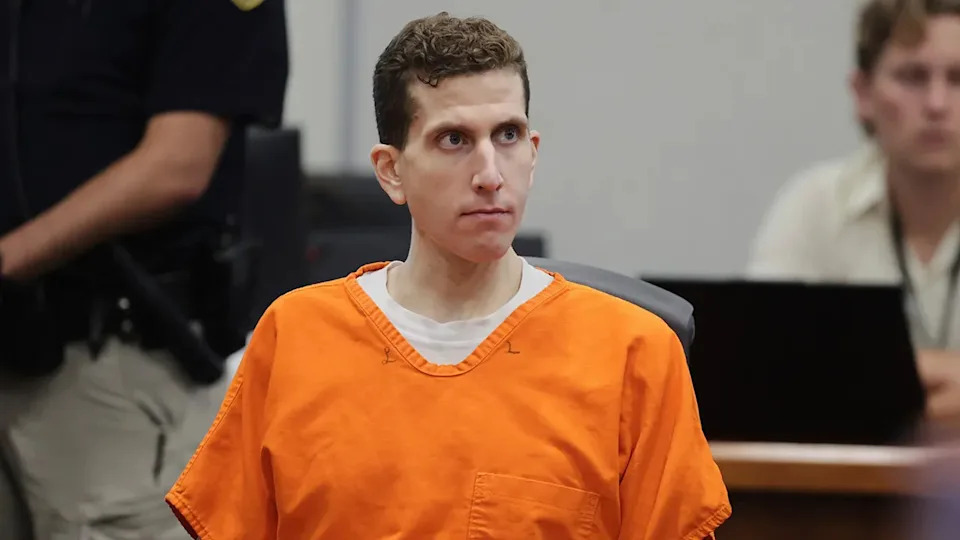CHICAGO - As the Chicago Bears explore a move from Soldier Field to a new stadium in Arlington Heights, Illinois State Rep. Kam Buckner is warning against the team’s push for substantial property tax breaks.
Buckner not backing tax deal
What we know
Buckner argues that the issue extends beyond Arlington Heights, affecting taxpayers across Chicago and Illinois.
He notes that Chicago residents are still paying off hundreds of millions of dollars from the 2002 Soldier Field renovation and says a new deal must ensure the team "pays their fair share" for the infrastructure it uses.
"If they're gonna leave to Arlington Heights, there should be a real conversation with the people of that locality of what the Bears being there means, right? They're going to add more stress to the infrastructure in good ways and in bad ways. And the point of property taxes is for them to be able to pay their fair share in that space. "So they should be asking that question," said Buckner. "When it comes to people who represent towns across the state, Rockford, Peoria, Aurora, places that have some real property tax issues. The question should be for the Bears. Why should they get a property tax break when the people of Illinois have not got one themselves?"
If the Bears ultimately leave Soldier Field for Arlington Heights, Buckner says the lakefront site could be reimagined as a public space with greater community access. He envisions transforming the stadium into an open venue capable of hosting more concerts and large-scale events, while also rethinking how people get in and out of the area.
Improving transit connections to the lakefront would be a key part of that plan, Buckner added, noting the potential role of the CTA in making the space more accessible. He believes the project would require "big, bold, creative ideas" led by the mayor’s office and city council, with the goal of ensuring the lakefront remains a vibrant, well-connected destination.
He also raised concerns about the ripple effects of a tax freeze, warning that shortfalls in Arlington Heights could force the state to fill budget gaps, pulling resources from priorities like transit and education.
Citing trends in other states, Buckner said public subsidies for professional sports venues are falling out of favor because "if NFL stadiums were truly economic development engines, the NFL would be paying for them themselves."
Buckner is also calling on the team’s leadership to appear before lawmakers in Springfield, as White Sox owner Jerry Reinsdorf did last year.
"I think that's important because if this is such a good deal, it was such a smart play, and if there are good things that come to the people of Illinois and Arlington Heights, then the Bears' ownership should feel comfortable standing up in public, having that conversation, having robust dialog with people like me who have been elected to represent the people and so folks can hear from them what their plans are," said Buckner. "You know just last year they had a big press conference saying that they were never leaving Chicago, and now they're saying we're leaving for Arlington Heights and now and it keeps flip-flopping. They need to clear the record, push the reset button and talk directly to the people of Illinois through their representatives and tell us what it is that they need and what they want."
Buckner says only a transparent, honest conversation about costs and benefits will determine whether the move is in the public’s best interest.
The backstory
The comments from Buckner come after Bears leadership said they were "extremely focused" on building a new stadium in suburban Arlington Heights. But the team needs help from state lawmakers on the passage of a bill that Bears officials hope could lessen their property tax burden.
The bill, HB 4058, did not pass during the spring legislative session.
It would allow for developers of so-called "megaprojects" that provide investments and create jobs in a particular community to freeze the amount of property taxes they owe. Such a policy could save the Chicago Bears millions of dollars in property taxes.
Gov. JB Pritzker was asked where he stood on the team seeking help from state lawmakers on a bill that could lessen the amount of property taxes it owes.
"I’d like the Bears to stay in the City of Chicago, if they could," Pritzker said. "They’re a private business. They can choose to do what they like with their business. I do not think that the taxpayers of the State of Illinois should be propping up what now is an $8.5 billion-valued business. They seem to be doing OK for themselves."







Comments